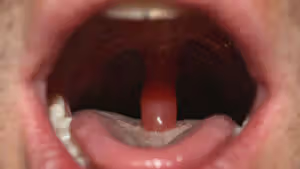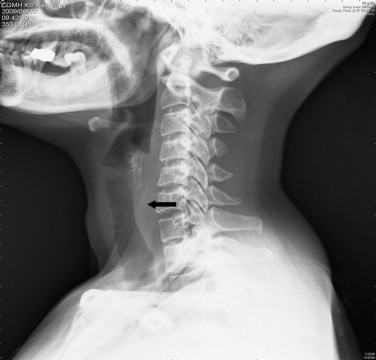That nagging feeling of something stuck or a “lump in the throat” is surprisingly common. Many people describe it as a foreign body sensation, especially when swallowing saliva — yet nothing seems to be there.
If this sounds familiar, don’t worry. In most cases, it isn’t dangerous. But it’s important to understand what might be causing it and when to see a doctor for proper assessment.
Common Causes of Lump-in-Throat Sensation

This feeling, medically known as globus sensation, can happen for several reasons:
- Throat muscle tension – Often linked to stress, anxiety, or frequent throat clearing.
- Acid reflux (GERD or LPR) – Stomach acid reaching the throat can cause irritation and swelling.
- Post-nasal drip – Mucus dripping from the nose into the throat can cause discomfort or the urge to clear the throat.
- Enlarged tonsils or adenoids – Especially in children and young adults.
- Thyroid enlargement or neck mass – Rarely, pressure from outside the throat can give a similar sensation.
- Foreign body (real object) – Occasionally, fish bones or food particles genuinely get stuck.
What to Do if You Feel Something Stuck in Your Throat
If you just had a meal and feel like something (especially a fish bone) is caught:

- Don’t try to force it down by swallowing rice or bread — this can make it worse.
- Avoid poking your throat with fingers or objects.
- Drink water or warm fluids and stay calm.
- If the discomfort persists or you have pain, difficulty swallowing, drooling, or bleeding, seek medical attention immediately.
For persistent lump sensations without a clear incident (no food stuck), try:

- Avoiding caffeine, spicy food, and late-night meals (helps reflux).
- Drinking more water.
- Managing stress and avoiding excessive throat clearing.
If the sensation lasts more than 2 weeks, it’s time to see an ENT specialist.
What to Expect When You See an ENT Surgeon
During your visit, the ENT will:
- Take a detailed history – including symptoms, duration, and lifestyle habits.
- Perform a gentle throat examination using a nasal endoscope (a thin flexible camera passed through the nose).
- This allows your ENT to check for swelling, reflux changes, tonsil issues, or actual foreign bodies.
- Assess the neck for thyroid or lymph node enlargement.
- Order tests if needed – such as a neck ultrasound, barium swallow, or CT scan for deeper evaluation.
- Provide treatment based on the cause:
- Acid reflux medication or dietary advice.
- Nasal sprays or antihistamines for post-nasal drip.
- Reassurance and voice therapy if muscle tension is the main factor.
When to See an ENT Immediately
Seek urgent ENT review if you experience:
- Painful swallowing or severe sore throat
- Difficulty breathing or drooling
- Weight loss or persistent hoarseness
- Blood in saliva or mucus
- Known fish bone or object stuck in the throat
These may indicate something more serious that needs prompt attention.
When to See an ENT
If you’ve had a persistent lump-in-throat feeling for more than two weeks — even if it’s not painful — it’s worth checking. An ENT specialist can help identify the cause and guide you on the right treatment.
Call to Action
If you’re worried about a lump in your throat or a foreign body sensation, don’t ignore it.
👨⚕️ Book an appointment with your ENT specialist to get a thorough evaluation and peace of mind.
🔗 Credible References
- NHS – Globus Sensation
- World Health Organization – Head and Neck Health Information
- Ministry of Health Malaysia – ENT Services
- PubMed: Globus Pharyngeus Overview
Discover more from The ENT Doctor
Subscribe to get the latest posts sent to your email.


Comments are closed